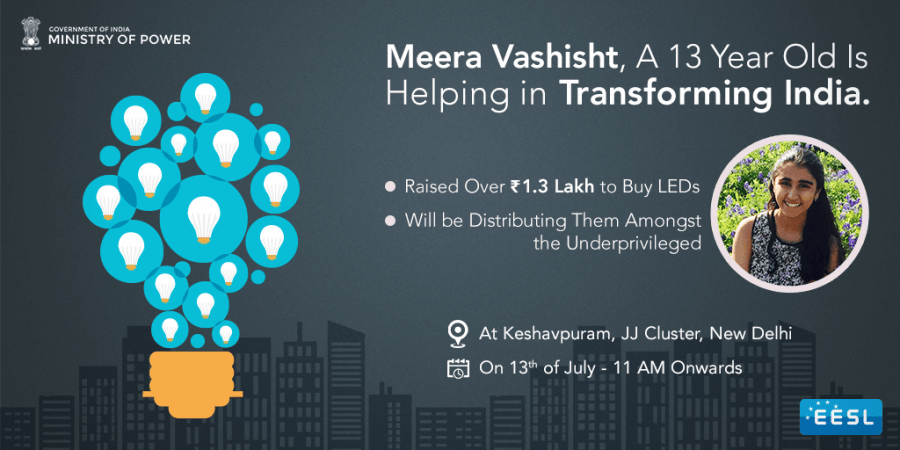
A 13-year-old Indian-American girl has managed to light up the lives of 600 underprivileged families in Delhi, by raising funds that were then used to buy low-consumption LED bulbs under the Central government's Unnat Jyoti by Affordable LEDs for All (UJALA) scheme, which is being implemented under the Ministry of Power.
Meera Vashisht, who lives in Houston in the state of Texas in the U.S., learnt about the Indian government's UJALA scheme while working on a science project when she was in the 7th standard. She read further about the programme, and the information her research threw up inspired her and her family to then reach out to as many as 500 people around them, from whom they raised $2,079.51, or approximately Rs. 1.4 lakh, according to a statement by the Ministry of Power.
They then used the money to buy 1,800 LED bulbs from the Energy Efficiency Services Limited (EESL), the agency that implements the UJALA programme, and distributed it to 600 underprivileged families in the JJ Cluster area of Keshvpuram in Delhi.
The Ministry of Power statement quoted her as saying on the occasion: "LED bulbs use less than half the energy of an inefficient bulb and runs for over seven-eight years. I am very happy to have been able to carry out the distribution of LED bulbs and hope to inspire young minds across the globe for working towards energy efficiency."
The statement also said Meera believes "her effort will result in lighting up 46 houses for one year, reducing electricity bills by Rs. 2,500 and most importantly there will be significant reduction in CO2 emissions every year."
The government claims more than 12.6 crore LED bulbs have been distributed cross the country under the UJALA scheme, one of the many that figure in India's efforts to reduce its carbon emissions by 30-35 percent. The LED bulbs already given out are believed to be saving about 4.48 crore kWh of energy daily, and "resulting in avoidance of about 3,278 MW of peak demand."

















